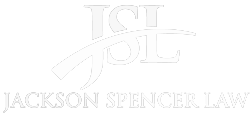Health, wealth, and happiness: It’s what most of us strive for. But 2020 has made attaining each especially hard. Many have lost their jobs, their income, and experienced depression at staggering rates. If you have been fortunate enough to keep working throughout the pandemic, you probably have another concern: staying healthy while interacting with others that could potentially expose you to a deadly virus.
While no preventative method is 100% foolproof (even those in strict isolation have fallen ill) there are things that you can do to protect your (and your family’s) health. Moreover, there are things your employer can (and should) do to protect you and your colleagues in the workplace.
Over the past several months, we have tackled many questions employees have about the novel coronavirus. But as the situation evolves, more questions arise. In this article, we will try to address several FAQs we’ve been fielding recently.
Let’s start with one of the most poignant questions: what to do if you test positive for COVID-19.
What to Know If…
You Test Positive for COVID-19
If you experience symptoms of COVID-19 or test positive for the virus, you should notify your employer immediately. It may also be useful to notify your employer of others you came in contact with during the few days before you tested positive. This way your employer can advise your co-workers to get tested as well. However, your employer may not tell other employees or customers that you tested positive or that would be a serious (and illegal) violation of your privacy.
To protect you and other employees, you should not return to work until you meet the criteria to end home isolation (or a medical professional clears you to return). Your employer cannot make you return to work if you test positive, even if you have no symptoms. While you may feel capable of working, you could potentially put your colleagues and clients at risk if you expose them to the virus.
A Co-Worker Tests Positive for COVID-19
If a co-worker tests positive, your employer should take serious precautions, as outlined by the CDC. First, your employer should notify anyone who came into close contact with the person who tested positive. Granted, you should not pry and ask your employer or other co-workers to identify who tested positive. Employers who reveal identifying information for a co-worker who tests positive could be in violation of the Americans with Disabilities Act. In reality, worrying about exactly who tested positive will not impact how you should respond.
Once you find out a coworker has tested positive, your employer should close off areas that were used by your co-worker for cleaning and disinfection. As long as your co-worker stays home after testing positive and your employer takes steps to disinfect their workspace, you can continue to work. It may be wise, however, to check your temperature regularly and keep an eye out for symptoms. If you experience a spike in temperature or other symptoms of COVID, you should notify your employer and get tested immediately.
What if you or a family member have underlying conditions?
If you or a loved one have underlying conditions that put you at risk of a more severe COVID infection, these are incredibly scary times. Naturally, you may worry that continuing to work could expose you (and your family members) to life-threatening illness. In this situation, the best thing you can do is consult with your doctor about whether it is safe for you to work with your underlying condition.
While the federal guidelines (as well as most states) do not require an employer to excuse you from work for having an un underlying condition, a doctor’s note may still help. By providing a doctor’s note to your employer, you may be able to ask for accommodations to ensure your safety. Accommodations may include moving your desk away from others, reducing your interaction with the public, or offering telework.
What if social distancing is not possible in your workplace?
Some workplaces, especially those that are considered “essential,” such as grocery stores, make social distancing a challenge. Your employer can, and should, take reasonable measures to protect all employees – like requiring face masks, installing barriers, limiting the number of employees during a shift, and frequently sanitizing workspaces.
Large employers, where social distancing is most challenging, are typically required to follow OSHA guidelines. If you feel your employer is not following OSHA guidelines, we recommend documenting your concerns and speaking with management. If management fails to address your concerns, it is worth consulting with an employee rights lawyer to ensure you’re being adequately protected.
What if you work for a large employer and not every employee has been tested?
This is a tough one! Your employer should take reasonable steps to protect each employee but cannot force everyone to get tested. If you are worried about coming into contact with the virus, do your part to socially distance, sanitize your workspace, and wear a mask at all times while at work. Continue to check your own temperature and watch out for symptoms that may indicate it’s time to get tested. Likewise, if you notice a co-worker displaying symptoms, you may want to inform management so they can take precautions.
In a nutshell, you can still be required to attend work even if your other co-workers have not been screened for coronavirus. But there are still steps you can (and should) take to protect yourself, your fellow co-workers, and customers or clients.
We’re here to answer your questions.
We know these are very confusing times for everyone and we all have many unanswered questions. If you believe your employer is putting your or your co-workers’ health and safety at risk, contact us for a free comprehensive assessment.

